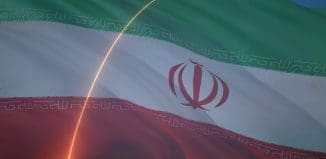Iran is going to be a nuclear power
This post is also available in:  עברית (Hebrew)
עברית (Hebrew)

Very soon, Israel would have to come to terms, so it seems, with a highly regrettable foregone conclusion: Iran will have become a nuclear power. Does this development mean that Iran would attack Israel? Or does it mean, perhaps, that Israel might use conventional weapons to attack Iran’s nuclear facilities, in order to prevent it from joining the nuclear club? It would seem than none of these two options is about to materialize.
Iran is not going to attack Israel, as its leaders are all too familiar with the “Second Strike Capability” Israel’s deep ocean fleet wields, which could deliver a serious blow to the regime’s facilities, for example in Teheran. From Iran’s point of view, belligerent Israel is a danger to world peace, so their nuclear program is designed to curtail this threat and safeguard against it, rather than use nuclear weapons to destroy Israel.
According to foreign sources, Israel would not use nuclear weapons, if only since doing so would serve as an unwitting admittance, contrary to is long-enduring policy of “nuclear ambiguity”, to having nuclear arms. Israel would not launch conventional means either, despite its leaders’ confrontational statements, for this could be a prelude to an all-Islamic effort to develop nuclear weapons or acquire them, thereby turning the entire Middle East to a multi-nuclear region, as well as the hotbed for regional warfare.
Such a development raises the following fundamental question worldwide, in particular in the US: how is Iran going to conduct itself after it will have achieved nuclear weapons? Will Iran become a bellicose power bent on undermining the long-standing American clout among the Middle East’s oil producing countries, thereby preempting a possible future Israeli strike? Or would Iran decide to dissipate these concerns among its neighbors and choose in turn to develop good relations with all fellow Muslim countries in the region, thereby clarifying it has no intention of seizing control of any of them.
Another source for concern in the US is the direction of Iran’s relations with the burgeoning sector of Islamic terrorist organizations? Iran is currently a major financier of terrorist activity, but Teheran does not direct their actions nor sets targets for them. The West seems to believe this policy is not going to change once Iran crosses the nuclear threshold.
In view of the political upset in the US following the Mid-term elections and the Republican victory in Congress and the Senate, it seems that despite the President’s reassurances to Prime Minister Netanyahu, that the US would never allow Iran to ‘go nuclear’, it is far from clear whether the Obama administration could at all back on the president’s promises. Aside from promises not always being tantamount to actions, it would be very difficult for a ‘lame duck president’, especially after a Democratic Party defeat, to determine foreign policy exclusively. It may very well be incumbent upon the president to face facts and accept that the Republican Party would be calling the shots from now on.
It would appear as though for now, Israel might be the primary casualty of the Mid-term election results. After his debacle, Obama may become anti-Israeli with a vengeance, as he would no longer have to consider public opinion in the framework of his decisions in the case of being tough on Israel. Having lost the election, President Obama may find it difficult to execute operative measures that would be damaging to Israel, but during his remaining two years in office, he could still undermine Israel’s international standing, cast a shadow over Israel’s leaders and generally make Israel’s life miserable.



























